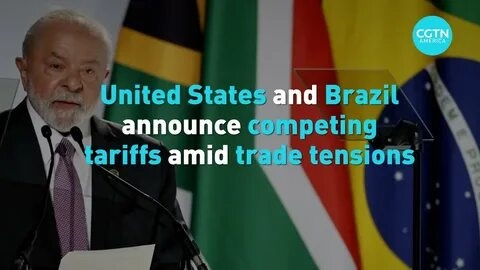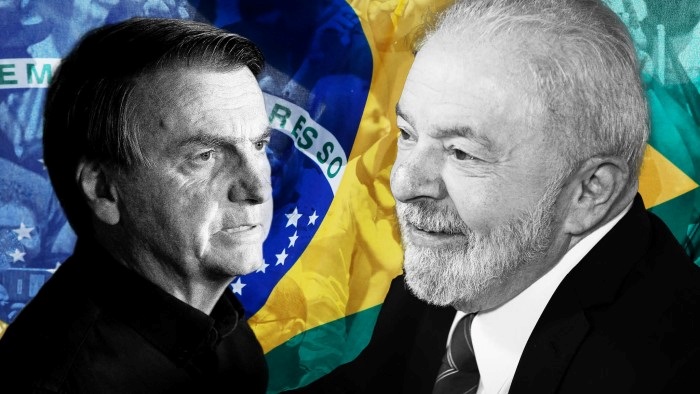 Brazilian President Luiz Inácio Lula da Silva
Brazilian President Luiz Inácio Lula da Silva
Brazil believes it can withstand Trump’s 50 percent tariff, and aides to Lula say he is unlikely to shrink from a confrontation with the White House, writes ‘The Washington Post’.
Since returning to the White House, President Donald Trump has used trade as a cudgel to exert concessions from smaller nations. But Brazil, his newest tariff target, is a much more formidable adversary, analysts said, and is less likely to bend to pressure from Washington.
Latin America’s largest nation has a relatively closed economy, more insulated than many of its peers from fluctuations in global trade. China, not the United States, is now Brazil’s leading trade partner, limiting Washington’s economic leverage.
And in Brazilian President Luiz Inácio Lula da Silva, who lost a finger working in a factory and rose to prominence battling the country’s military dictatorship, Trump has picked a fight with a leader who has long relished a political brawl.
In interviews with The Washington Post, aides to Lula said the government believes it can withstand a 50 percent tariff on Brazilian goods, which Trump announced would go into effect on Aug. 1. In his letter addressed to Lula, Trump said the move was “due in part” to the prosecution of former president Jair Bolsonaro, a far-right ally of the American president, on charges of plotting to retain power through military force following his 2022 electoral loss.
“There could be impacts that could slow our growth a little bit,” said one senior official in the Foreign Ministry, speaking on the condition of anonymity to candidly discuss the government’s thinking. “But from an economic point of view, Brazil doesn’t have a strong economic dependency on the United States.”
The United States is seen here as an important trading partner — purchasing $40 billion worth of goods in 2024 — but not a crucial one. Exports to the U.S., according to a recent Moody’s report, account for only 1.7 percent of Brazil’s economic output.
Countries more reliant on the U.S. have been more susceptible to Trump’s economic pressure campaign. When he declared a massive tariff on goods from Vietnam — where U.S. exports account for nearly one-fourth of its gross domestic product — the Southeast Asian country moved quickly to reach a deal that lifts tariffs on most American imports.
In January, when Colombian President Gustavo Petro refused to accept U.S. deportation flights and Trump announced a 25 percent retaliatory tariff, Petro hastily backed down, fearful of jeopardizing his country’s leading export market.
“Brazil is less dependent on the United States,” said Pedro Abramovay, vice president of programs at the Open Society Foundations. “It’s not irrelevant, but Brazil can withstand it; this won’t break the country.”
In recent years, Brazil has strengthened market ties with peer countries in the BRICS bloc — historically made up of Brazil, Russia, India, China and South Africa — at the expense of trade with Western nations. As of 2023, Brazil’s trade with the bloc was roughly 50 percent greater than with the U.S. and Europe combined, according to government data reported last year by CNN Brasil.
Lula, aides said, could also benefit politically from a fight with the U.S.
Although Lula is historically one of Brazil’s most popular figures, his third term in office has been marked by growing public disillusionment. Despite significant efforts — including new messaging and a revamped communications team — Lula has failed to reverse his falling polling numbers, which have bottomed out at historic lows. Recent surveys show a close race between Lula and Bolsonaro if such a rematch were to occur.
 Lula da Silva vs Bolsonaro (left).
Lula da Silva vs Bolsonaro (left).
Pic.: ‘Financial Times’
Bolsonaro, who faces 40 years in prison, is expected to go on trial later this year, accused of leading an extensive plot to overthrow the government and kill his political rivals. He retains a fiercely loyal, if diminished, following. His prosecution, decried by Trump as a “witch hunt,” is seen by many other Brazilians as a test of their democracy.
Trump’s announcement Wednesday, analysts said, has shifted the country’s political dynamic. Lula now has a clear foe and a potent line of attack against Bolsonaro, or whoever takes on his political mantle in next year’s presidential election — able to tar them as being aligned with a hostile foreign power.
“Lula wants to tax the super rich,” read a viral political message sent out by the president’s supporters Wednesday. “Bolsonaro wants to tax Brazil.”
On Wednesday evening, aides said, Lula called an emergency meeting to discuss Trump’s tariff. They said he wanted to establish immediately that Brazil would not cower before the U.S. Within hours, Lula had released a statement that rebutted all the points in Trump’s letter — ranging from complaints over Brazil’s trade tactics to its hard-line regulation of social media — and threatened economic retaliation.
“They made politics out of this, and we’re going to play the game,” said one Lula aide, speaking on the condition of anonymity to summarize the president’s thinking. “He won’t make threats or fall into provocation, but his responses will be firm and bold.”
Aides to Lula said the government would not compromise on Bolsonaro’s prosecution.
“What’s new here is that Trump is using commercial tactics for political ends, weaponizing trade,” said a senior Lula adviser, speaking on the condition of anonymity to share internal deliberations. “But the deal he wants is not acceptable.”
read more in our Telegram-channel https://t.me/The_International_Affairs

 10:37 14.07.2025 •
10:37 14.07.2025 •






















